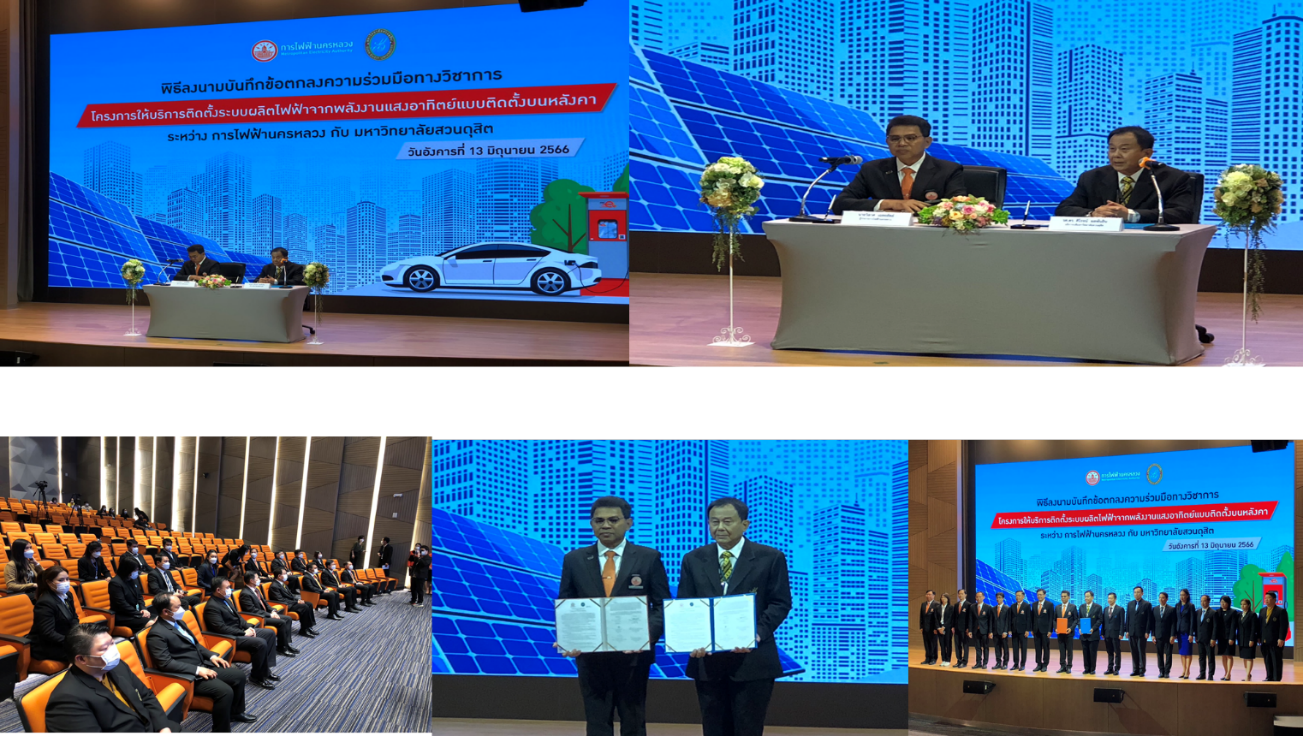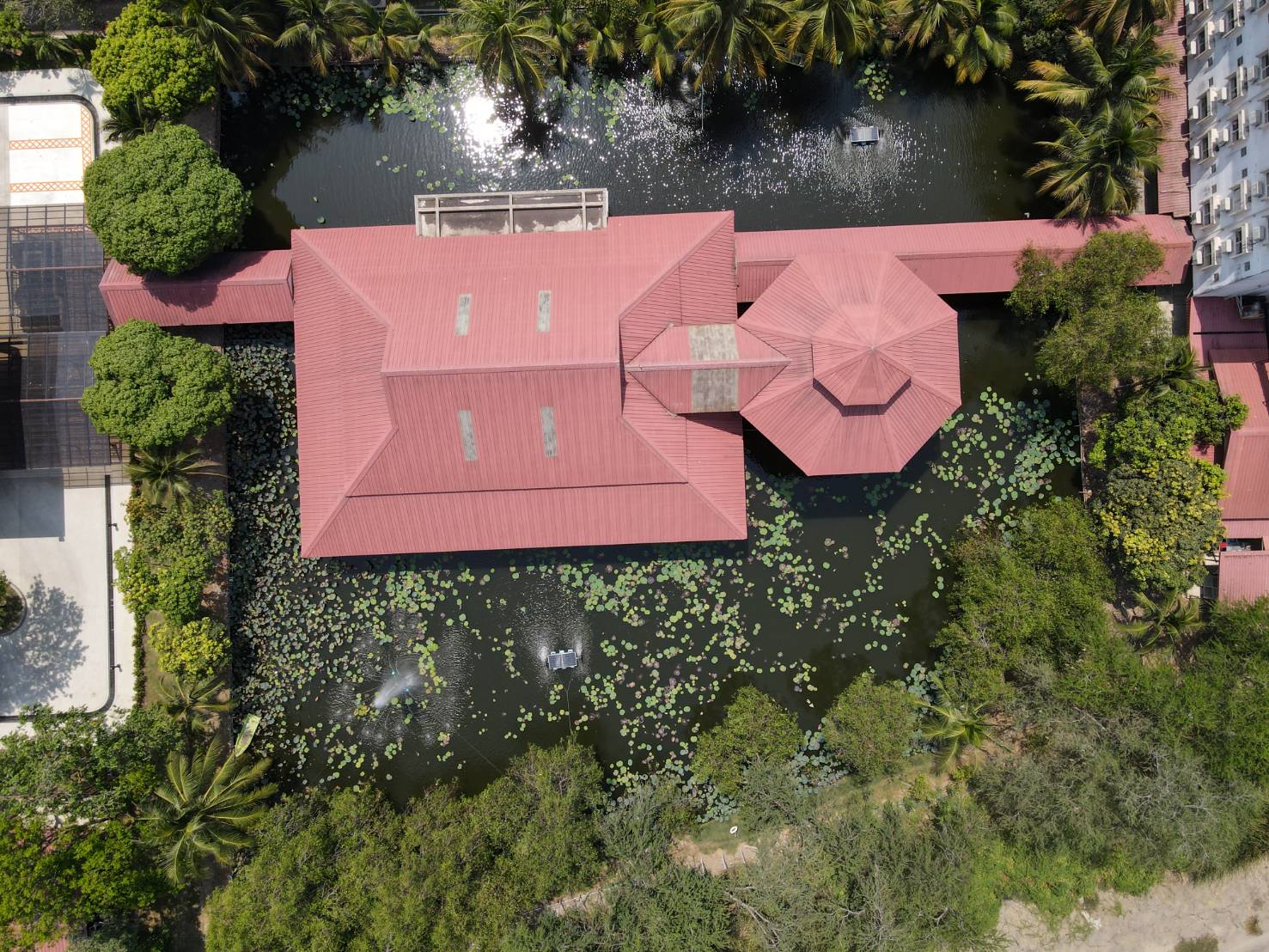Suan Dusit University has demonstrated a clear commitment to energy conservation.
This initiative goes beyond mere regulatory compliance — it represents a strategic integration of energy management aligned with global goals to enhance energy efficiency.
1. Establishing Clear Policies and Frameworks (Policy & Framework) To ensure that energy management is continuous and effective, the University has implemented a formal energy conservation policy for all new and renovated buildings. This policy serves as a framework for energy management, defining clear objectives and targets that align with the University’s actual energy usage profile. Importantly, it complies with national regulations requiring designated buildings to meet specific energy efficiency standards. The policy emphasizes the continuous improvement of building energy performance, ensuring it remains appropriate to the University’s context and contributes meaningfully to sustainable energy use.
environmental-quality-management-policy-2565.pdf
2. Systematic Action Plan for Reducing Overall Energy Consumption (Systematic Reduction Plan)
Suan Dusit University has established a systematic and evidence-based action plan aimed at reducing overall energy consumption, focusing on two primary energy-intensive systems: lighting and air-conditioning.
2.1 Energy Reduction Measures in the Lighting System
The University has implemented practical operational measures to reduce electricity consumption in the lighting system, notably by turning off lights during non-operational periods, particularly during the one-hour lunch break. By reducing the daily lighting operation from eight hours to seven hours — based on approximately 1,000 T8 fluorescent lamps and 250 working days per year — this initiative has led to a significant decrease in electricity usage across campus lighting systems.
2.2 Energy Reduction Measures in the Air-Conditioning System
To minimize energy consumption in air-conditioning systems, the University has undertaken a series of efficiency improvement measures, as follows:
- Enhancement of Air-Cooled Chiller Performance: The University has optimized the condenser air temperature in six 150-ton air-cooled chillers, improving system efficiency and reducing overall energy demand.
- Optimization of Split-Type Air-Conditioning Units: A preventive maintenance and cleaning schedule has been established for all split-type units, ensuring optimal performance. This measure is estimated to reduce energy consumption by up to 5% through improved system efficiency and reliability.

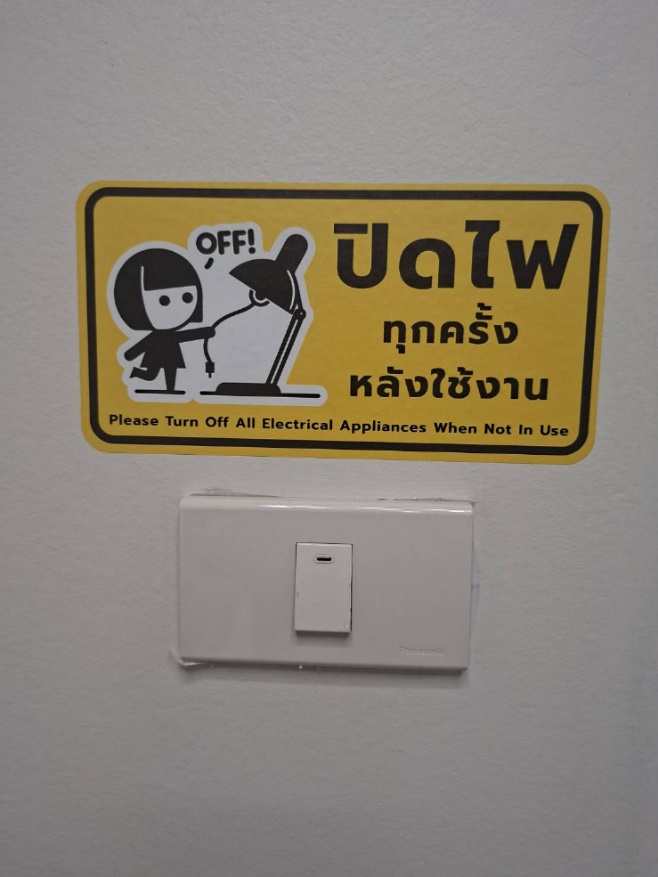
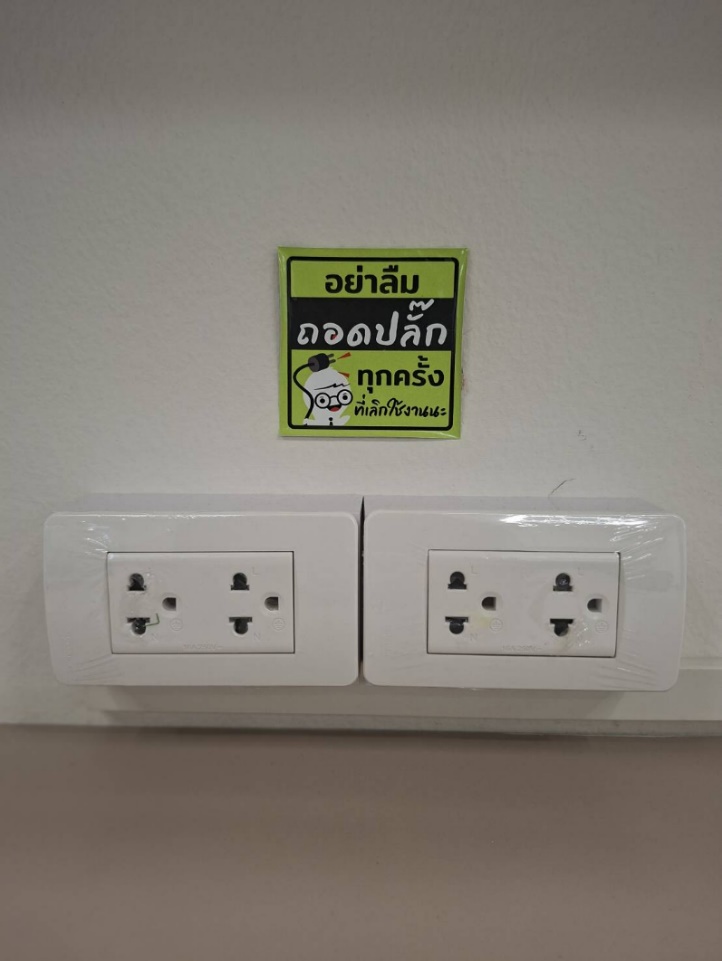
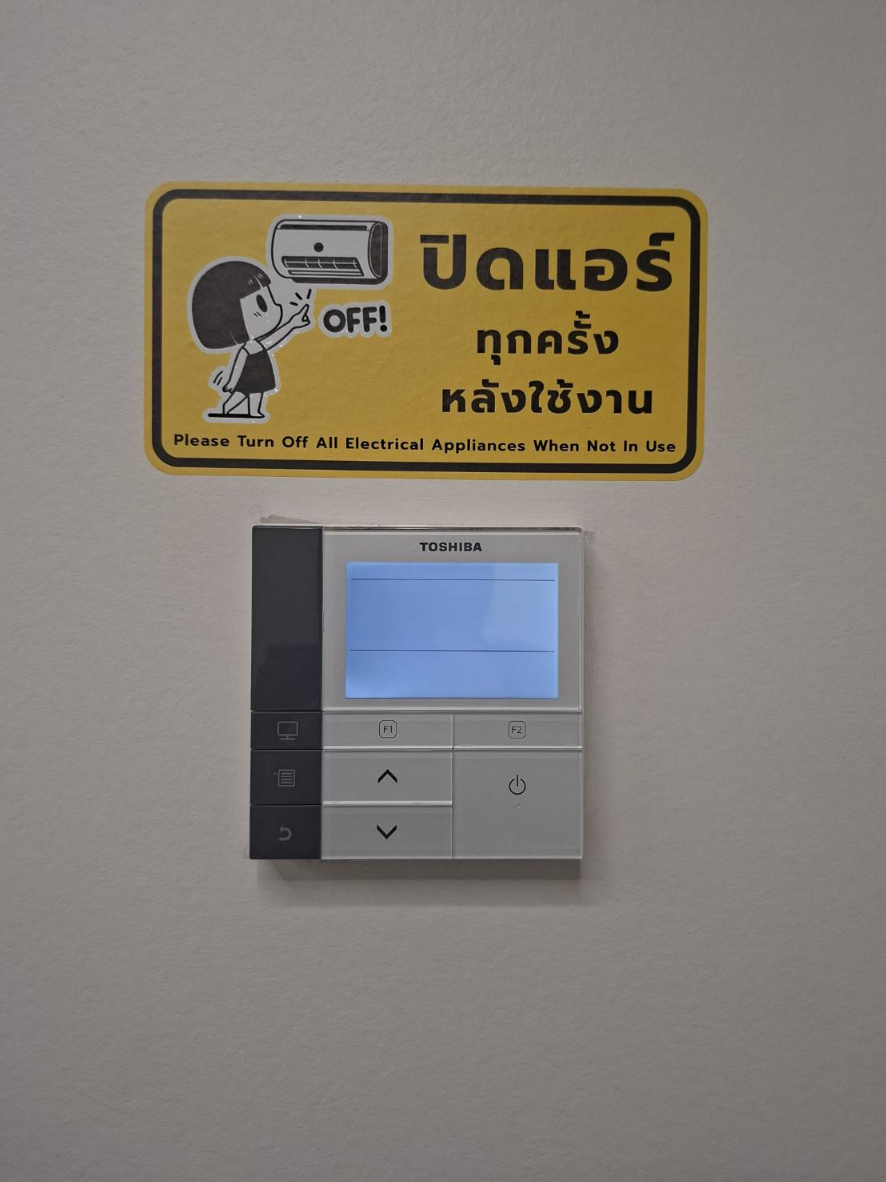
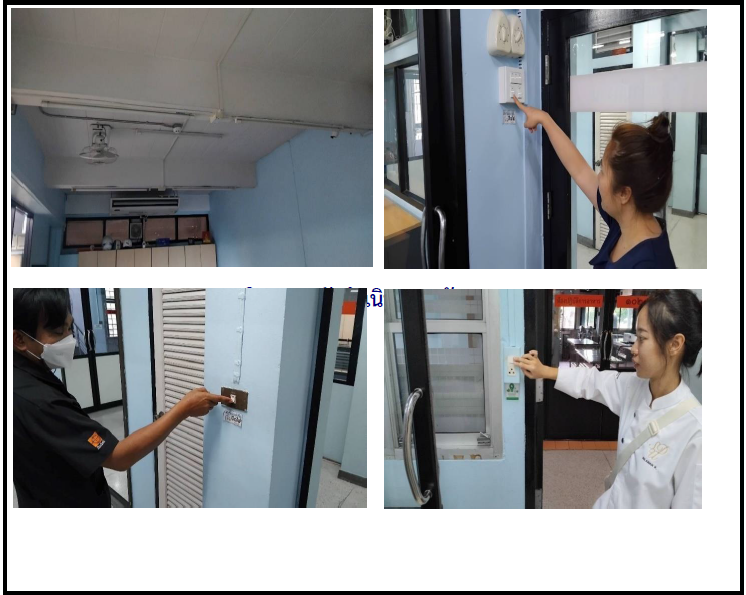
3. Measurement and Verification for Energy Efficiency Improvement (Measurement and Verification)
To ensure that energy conservation goals are effectively achieved, Suan Dusit University has implemented a systematic energy measurement and verification process, aligned with international energy wastage identification principles. Through this analytical approach, the University is able to accurately identify areas of highest energy loss by collecting and analyzing key operational data, such as energy consumption levels and equipment operating hours, as well as assessing the improvement potential of major energy-consuming systems.
This precise analysis enables the University to prioritize energy efficiency measures and target the most energy-intensive equipment. The primary systems and equipment subject to monitoring and analysis include:
- Centralized air-conditioning systems (Chillers)
- Split-type air-conditioning units
- Lighting fixtures
- Other electrical systems
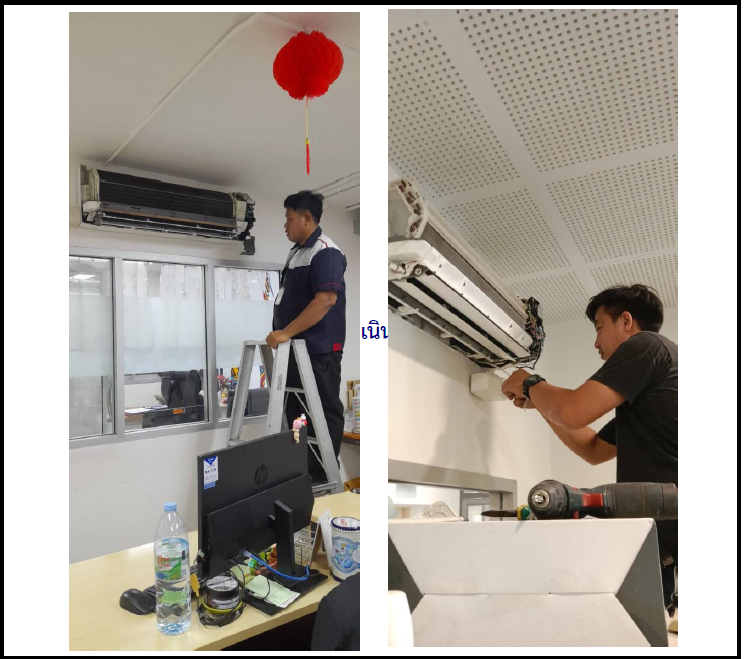
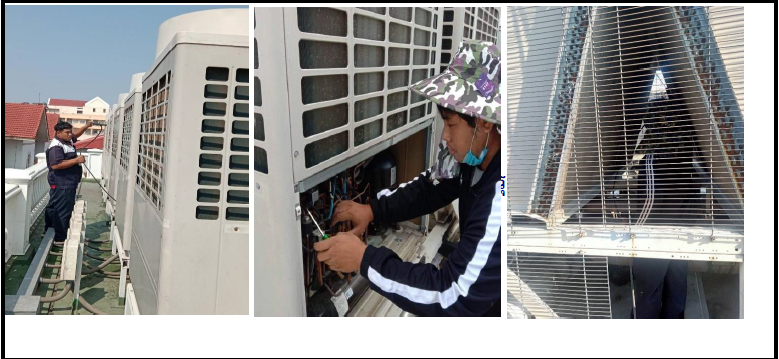
Through comprehensive implementation from establishing formal energy policies to conducting detailed measurement and analysis of energy use Suan Dusit University has not only achieved its internal energy-saving goals but also contributed to the global objective of SDG 7: Affordable and Clean Energy, promoting sustainable energy efficiency.
4. Revolutionizing Energy Use Toward Sustainability
Suan Dusit University promotes and enhances the efficiency of its energy management system by encouraging the use of renewable energy across its campuses, including the Suphanburi Campus and Educational Centers. This initiative includes the installation of solar photovoltaic systems (Solar Rooftops), solar-powered streetlights, and solar-powered water turbines, primarily designed for self-consumption. In 2024, the total renewable energy generation reached 772.71 GJ. The system is equipped with real-time monitoring through the FusionSolar application, which allows continuous tracking of electricity generation from the solar systems. The platform displays key data such as current power output, total energy produced, and the amount of electricity supplied to the system.
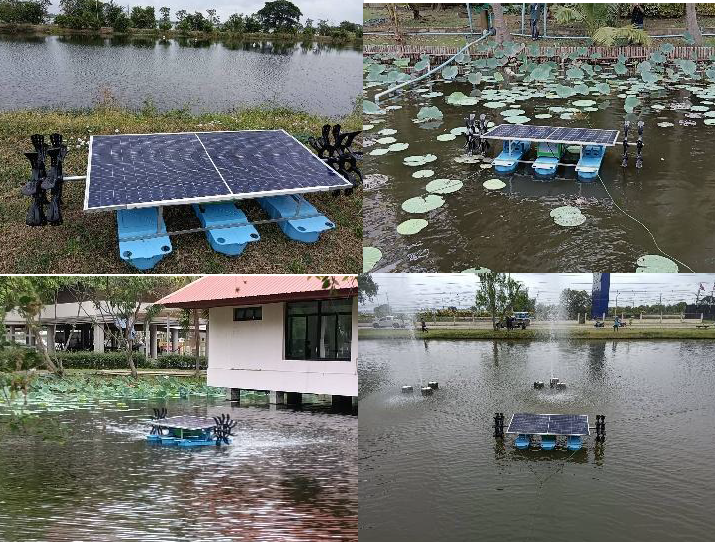
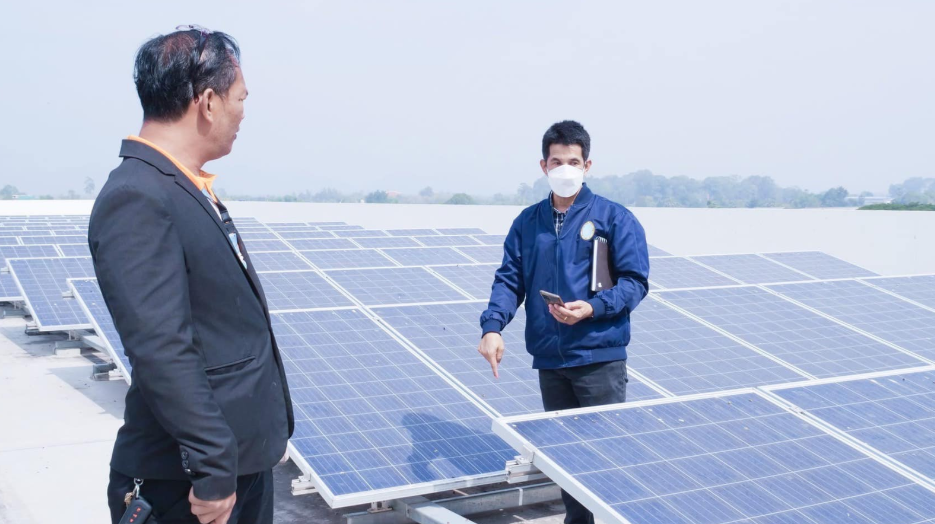
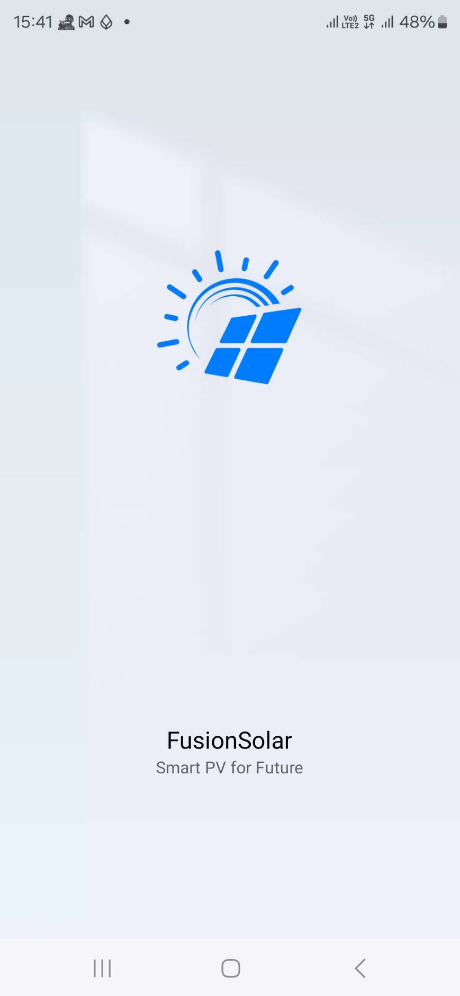
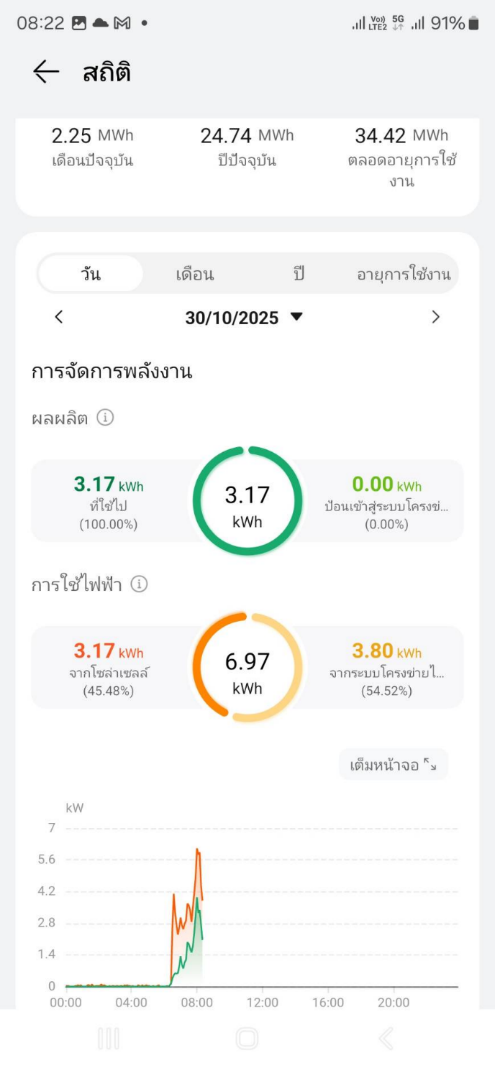
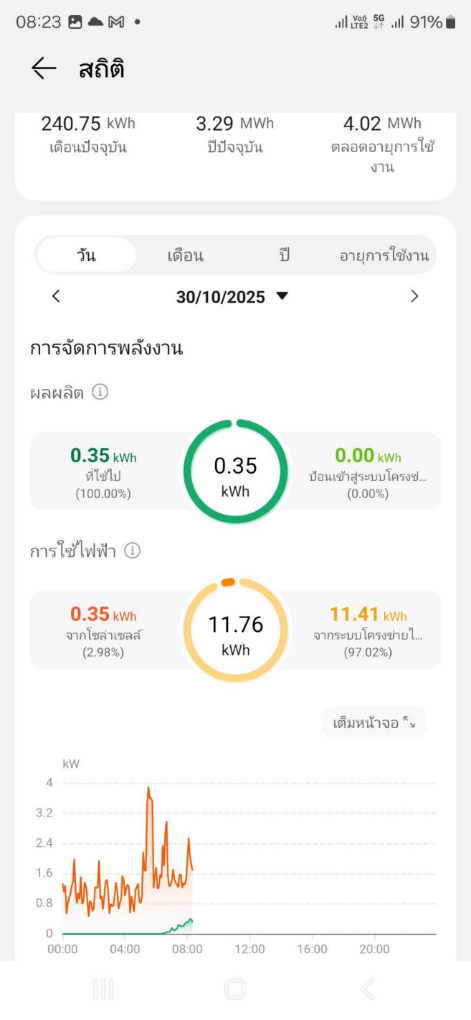
Since 2023, Suan Dusit University has been advancing the United Nations Sustainable Development Goals (SDGs) — particularly SDG 7: Affordable and Clean Energy and SDG 17: Partnerships for the Goals — through the initiation of a large-scale Solar Rooftop Installation Project with a total capacity of 3,765.20 kWp. The project’s primary objective is to reduce long-term electricity costs over the next 20–25 years while promoting sustainable energy utilization within the university system. Suan Dusit University has planned the installation of solar rooftop systems across nine key locations, including Suan Dusit University, Nakhon Ratchasima Road, Dr. Sirote Pholpanthin Building, Graduate School, Sukhothai Road, Science Center, Sirindhorn Road, University Dormitory, Suphanburi Campus, Nakhon Nayok Education Center, Lampang Education Center, Hua Hin Education Center, Trang Education Center The implementation will begin in 2026 and aims to expand the university’s clean energy network, reinforcing its commitment to sustainability and energy efficiency.
Strong Partnership Model (SDG 17)
This project has been made possible through a strategic collaboration formalized by a Memorandum of Understanding (MOU) between the Metropolitan Electricity Authority (MEA) and Suan Dusit University. Both parties share a clear objective to promote and support research and implementation of renewable energy system design and management. The partnership also extends to the development and management of efficient energy use, aiming to foster education and energy conservation.
The project operates under a Service Agreement (SA) model a mechanism that enables government institutions to transition smoothly toward clean energy adoption. Through this initiative, the University not only promotes the use of clean energy on a broader scale but also strengthens collaboration among public sector organizations to achieve the highest level of energy efficiency. It forms an integral part of the “Green and Clean University” vision, reflecting Suan Dusit University’s strong commitment to sustainable development.
